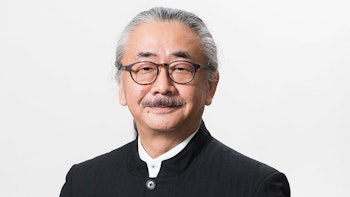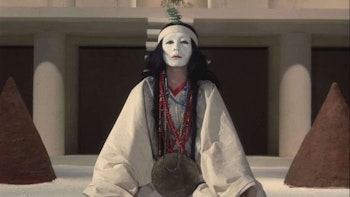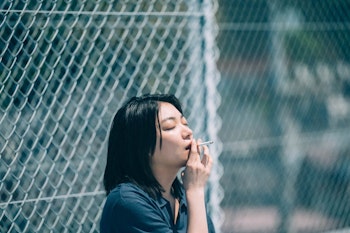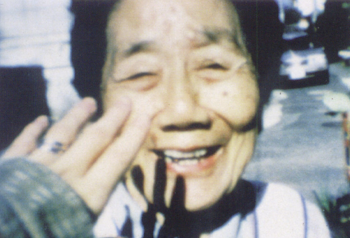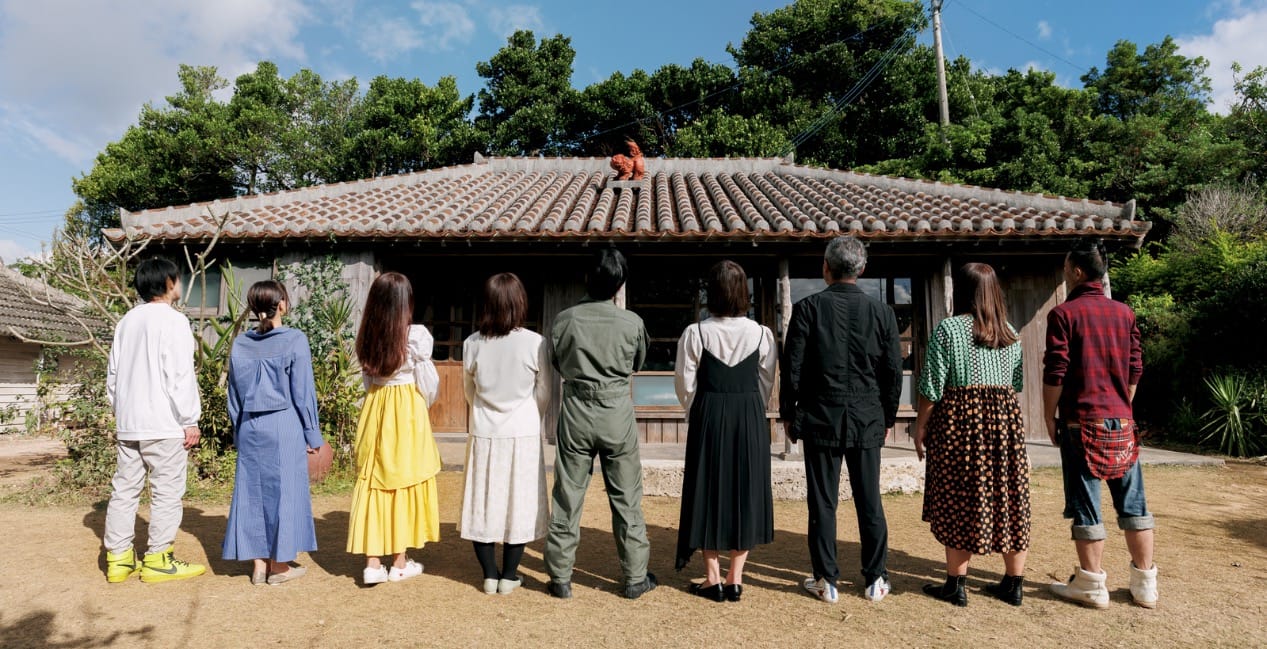
Everything about Netflix’s Love Village (Ai No Sato) seems completely chill. Now in its second season, the reality show finds an assortment of singles looking for love while living in the titular tranquil place. This time around, the participants find themselves in a particularly picturesque abode in Okinawa, supplementing their search for romance by renovating an older house, growing local vegetables and taking care of a pint-sized goat.
The vibe places it in a lineage of Japanese entertainment that has entranced viewers outside the country owing to its generally laid-back atmosphere. That’s highlighted by the just-living-life pace of 2010s reality hit Terrace House or the surprise streaming success Old Enough!, a condensed version of a long-running Japanese TV program fixated on toddlers running errands by themselves for the first time. Go beyond broadcast content and you find other manifestations of art embraced for its soothing qualities. Think of internet-born interest in hip-hop producer Nujabes’ body of work (helping shape the lo-fi-hip-hop genre, which often is tied to anime) or a love of the relatively mundane world found in Animal Crossing.
Forget “cool Japan,” the world wants “cozy Japan.”
The second season of Love Village certainly has plenty of stretches ideal to mentally soak in, and by the end of episode three I was curious if my landlord would allow for a miniature goat in my place. Yet what has made it one of the most compelling Japanese TV offerings of the year — new episodes arrive weekly all November — is the drama cutting through the peaceful setting. As tends to be the case with shows viewed by those outside the country as pure comfort, what makes it special is the very messy emotions at the show’s center.
Love Village’s main hook is that every participant looking for love is 35 years old or over. It’s a clever wrinkle to this young-leaning genre of TV, and also offers an intriguing look at the future of relationships (and reality shows) in a country that’s rapidly graying. Like Terrace House before it, Love Village lacks any specific structure beyond “hang out with one another,” though elements of the real world such as jobs are out of the way for participants too. Meaning they can zero in on getting to know each other. Studio segments break up the happenings in Okinawa, with two hosts offering thoughts on what has just transpired (while also providing running commentary as the footage plays out).
In terms of reality dating shows, Love Village and similar Japanese creations offer an alternative to the bombastic, blow-ups-around-every-corner style of programming most associated with Western productions. The drama in the prior tends to be understated, while in the latter its bellowing in your face. The second season of Love Village isn’t without conflict — in fact, disagreements and tension between contestants seems much higher than in season one — but it plays out with less aggression than what you typically associate with a show like Love Is Blind, which is pretty subtle from an American perspective. In the Love Village, voices rarely raise and problems get worked out with chats.
Yet where this view of Japanese reality TV as being “calming” or “charming” goes astray is in thinking nothing dramatic is playing out. This perception clouded Terrace House, at least until the very-real death of a participant on the show woke up many following it. This embrace of Japanese entertainment for its borderline boring qualities, though, overlooks the emotions making them so compelling.
The difference really is volume — while many American shows need to clearly display that someone is angry or sad, Japanese equivalents like the aforementioned Terrace House or this year’s The Boyfriend are muted in comparison. The feelings, though, are there, and the calm around them make the moments they burst through all the more potent.
Season two of Love Village has highlighted this masterfully. Large stretches of it unfold at a relaxed pace — shots of people bonding while painting a wall or watering plants or simply lounging around — but when they actually have to confront their feelings things get more intense. While never becoming over the top, the episodes out on Netflix so far showcase moments of real joy, sadness, grief and frustration. Tears flow frequently, and not in some low-key way either…it’s full on bawling as they grapple with the ups and downs of making a connection.
Those moments aren’t relaxing — they are messy and raw, just presented in a different way. Love Village, like other Japanese shows before it, can provide a sense of calm at times, but it is at its best when putting the intensity of love in its many forms right in the center.






